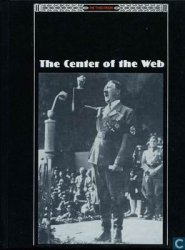Although Aquinas’ theory of the analogy of being seemed to cohere well both with Aristotle’s teaching and with the requirements of religious and theological language about God, many authors challenged the view that the sense of ‘‘being’’ would vary with whatever it is attributed to. To be sure, thirteenth-century authors agreed that different kinds of things existed in radically different ways. Indeed, based on Aristotle’s considerations in the Categories alone, it was taken for granted that the mode of being of substances (namely, subsisting on their own without inhering in an underlying subject) is radically different from (indeed, opposite to) the mode of being of accidents (namely, inhering in an underlying subject) (see the entry on Substance, Accidents and Modes in this volume). And of course it was also generally held that the way God exists is infinitely more perfect and, hence, is radically different from the way limited creaturely natures can exist. But there were differences in how individual authors interpreted these differences themselves in their metaphysics and theology, and how they thought these differences are properly reflected in thought and language, in their semantic considerations.
For Aquinas (who was influenced on this point by Avicenna’s doctrine), the ultimate difference between God and creatures is the real distinction between essence and existence in creatures and the identity thereof in the absolutely simple God. It is precisely this famous ‘‘thesis of the real distinction’’ that prompts Aquinas to think of creaturely natures as imposing diminishing determinations on being, which without such a limitation is unlimited:
Thus, for Aquinas, creaturely essences impose a limitation, and so a diminishing determination on being itself (as it would be found in God, without any limitation), precisely because of the real distinction between essence and existence in creatures, whereas the divine essence does not impose such a limitation on divine being, precisely because they are really one and the same infinite reality. It is this order of reality of the different modes of being that is reflected in the different, analogically related senses of ‘‘being’’, expressing an analogical notion of being. The reason for this parallelism between different modes of being and the analogical senses of ‘‘being’’ seems to be that predications of ‘‘being’’ of any creature x of nature N may be viewed as a predication of ‘‘IS’’ in the unlimited sense (in which it only applies to God) with the added diminishing qualification referring to N, determining precisely the sense of ‘‘being’’ in which it can apply to a creature of nature N; that is to say, ‘‘x is a being (of nature N)’’ if and only if ‘‘x IS-with-respect-to-N’’ (cf. Klima 2002c).
However, motivated either by Averroes’ interpretation of Aristotle, or by Augustine’s Neoplatonic theological doctrine, philosophers, such as Siger of Brabant, as well as theologians, such as Henry of Ghent, rejected a real distinction of essence and existence even in creatures, arguing that existence cannot be something really distinct, added to essence as another ‘‘thing’’ (although Giles of Rome held precisely this view in his debate with Henry of Ghent) (cf. Lambertini 2008). Consequently, these authors had a different interpretation of both the Aristotelian metaphysical doctrine of the analogy of being between substance and accident, and the philosophical-theological doctrine of the difference between God and creatures. However, if essence and existence are not really distinct in creatures, then essences cannot act as diminishing determinations on existence in the way Aquinas conceived.
On Henry’s view, essences in themselves, as they are eternally in the divine mind, have their own eternal essential being (esse essentiae), grounding the eternal truths of essential predications (such as ‘‘Man is an animal’’). However, these essences are realized in actual existence in the creation of singulars, in which their acts of actual existence (esse actualis existentiae) are intentionally distinct (are represented by different intentions, that is, concepts), but not really distinct from the essences of these singulars (although, as Henry insists, this distinction is not merely a conceptual one) (cf. Porro 2008). But then this conception breaks the strict logical relationship of the Thomistic conception between different modes of being and the different analogical senses of the term ‘‘being’’ in which
It is truly predicable of different sorts of entities of different natures. If different creaturely natures are not construed as adding diminishing determinations to their distinct acts of being, then the analogically related notions of being are not regarded as derivable from a primary notion through extension by the addition of diminishing qualifications. Rather, different notions of being are arrived at simply through the specification of different kinds of beings in terms of their different natures. However, this move, at least in principle, gives rise to the possibility of abstracting some generic notion of being univocally applying to several kinds of entities, just as we can abstract generic notions of different specific natures, and so, the more specific notions of being expressing the different ways of being in which things of different natures exist are just different specifications of the original, confused, unlimited notion, applying to all.
To be sure, Henry still insists that our intellect cannot form a single concept that would equally apply to God and creatures, on account of the infinite essential difference of perfection between God and creatures. But, at the same time, he also granted that we at least appear to have a single concept of being applying to God and creatures, because we just tend to confuse the two different ways of abstracting the notion of being that applies to God and the notion of being that applies to creatures, resulting in a concept of being which is ‘‘something analogous common to Creator and creature, containing under itself being as principle and being as produced (commune analogum ad creatorem et creaturam, continens sub se ens principium et ens principiatum)” (Henry of Ghent 1520: Summa, art. 21, q. 3, f. 126rD).
Nevertheless, this conception quite clearly opens up the possibility of another departure from the ‘‘modistic principle’’: different modes of being do not demand different senses of the term ‘‘being’’ to express them, for all these different modes can be apprehended indifferently by a single concept, providing the meaning of a single univocal term, allowing reasoning about any being as such, without a risk of the fallacy of equivocation. In fact, this was precisely one of the main motivations for Duns Scotus to endorse a theory of the univocity of being, as opposed to the Thomistic theory of the analogy of being, or rather as more directly opposed to Henry’s conception of two distinct, yet analogically related notions of being (cf. Scotus 1950: Ord., 1, d. 3, pars 1, q. 1-2, n. 26-56; Dumont 1998).
Consider the following syllogism: Anything that is a bat is a flying mammal; any baseball bat is a bat; therefore, any baseball bat is a flying mammal. The argument is clearly not valid, insofar as the premises are true, because in the sense in which a flying mammal is a bat, a baseball bat is not a bat. The argument is vitiated by the fallacy of equivocation. But this holds, apparently, not only in the case of equivocal terms, but also in the case of analogical terms. Consider the following argument: Everything that is healthy is alive; but the food on your plate is healthy; therefore, the food on your plate is alive. Clearly, unless you are about to consume something that is alive, the food on your plate is healthy only in the sense that it makes you healthy, but not in the sense that it is alive and well. However, it is only in that sense of ‘‘healthy’’ that the first premise can be true. So, an argument of this sort is fallacious even with analogical terms. Accordingly, if ‘‘being’’ cannot be predicated of God and creatures in the same sense, then, apparently, all arguments arguing from creaturely being to divine being are fallacious (which would render absolutely all arguments about God fallacious, provided that all predications are just variously determined predications of being, and all our cognition derives from our cognition of creatures).
To be sure, Thomists could still respond, as for instance Aquinas’ great commentator Cajetan did, that some analogical terms still possess sufficient unity to secure the validity of reasoning with them. Take for instance the following argument: Whatever is seen is cognized; this mathematical problem is seen by the intellect; therefore this mathematical problem is cognized. Clearly, in this piece of reasoning, the minor premise is true only in the secondary sense of ‘‘see,’’ in which it applies to the intellect, whereas the major premise is true whether ‘‘see’’ is taken in the bodily or in the intellectual sense. By contrast, consider the following argument: Whatever is seen is colored; this mathematical problem is seen by the intellect; therefore this mathematical problem is colored. In this case, the major premise is true only in the bodily sense of ‘‘see,’’ whereas the minor premise is only true in the intellectual sense, and that is why there is fallacy in the argument. However, in the previous argument there is no fallacy precisely because the major premise is true in both related senses (cf. Hochschild 2007).
Nevertheless, however the case maybe with the debate between Thomists and Scotists, it is clear that Scotus’ doctrine is another step away from a simplistically interpreted ‘‘modistic principle,’’ although in the opposite direction: just as the order of being need not precisely match the conceptual order (that is, every distinction of concepts need not have a corresponding real distinction among beings), so different modes of being need not be reflected in different (although possibly related or ‘‘partially identical’’) concepts. Thus, Scotus’ doctrine of the univocity of being, while still recognizing different modes of being in reality, simply allows the possibility that the intellect can form a simple concept indifferently representing them all, without there being a simple, common reality directly and adequately represented by this concept. Viewed from this perspective, Scotus’ move seems to fit squarely into a general trend in late-medieval philosophy: the elaboration of ever more refined accounts of just how the conceptual order may differ from the real order, culminating in fourteenth-century nominalism.
Although Scotus’ treatment of the notion of being may be regarded as a part of this trend, his treatment of uni-versals in general still seems to hearken back to ‘‘the modistic principle’’: common terms of our language apply to several, numerically distinct singular things of the same kind, because these things share a common nature, which, to be sure, is not some numerically one real entity on a par with the singulars themselves, but still has its own ‘‘less-than-numerical unity’’ and its corresponding mode of being, preceding any act of the intellect conceiving it. Yet, Scotus’ treatment of ‘‘being’’ indicates that, at least from a semantic point of view, there is no real need to posit such common natures to account for the universal mental and linguistic representation of singulars. Thus, his younger contemporary Henry of Harclay could rightly insist, precisely on the basis of Scotus’ own doctrine of the univocity of being, that our intellect is capable of forming concepts that indifferently represent singulars of the same kind without representing a single common entity (whether it is supposed to be numerically or merely less-than-numerically one). It is precisely this idea that seems to have been seized upon by William Ockham, to be worked out in detail in his nominalist philosophy and theology (Henninger 2006).




 World History
World History









